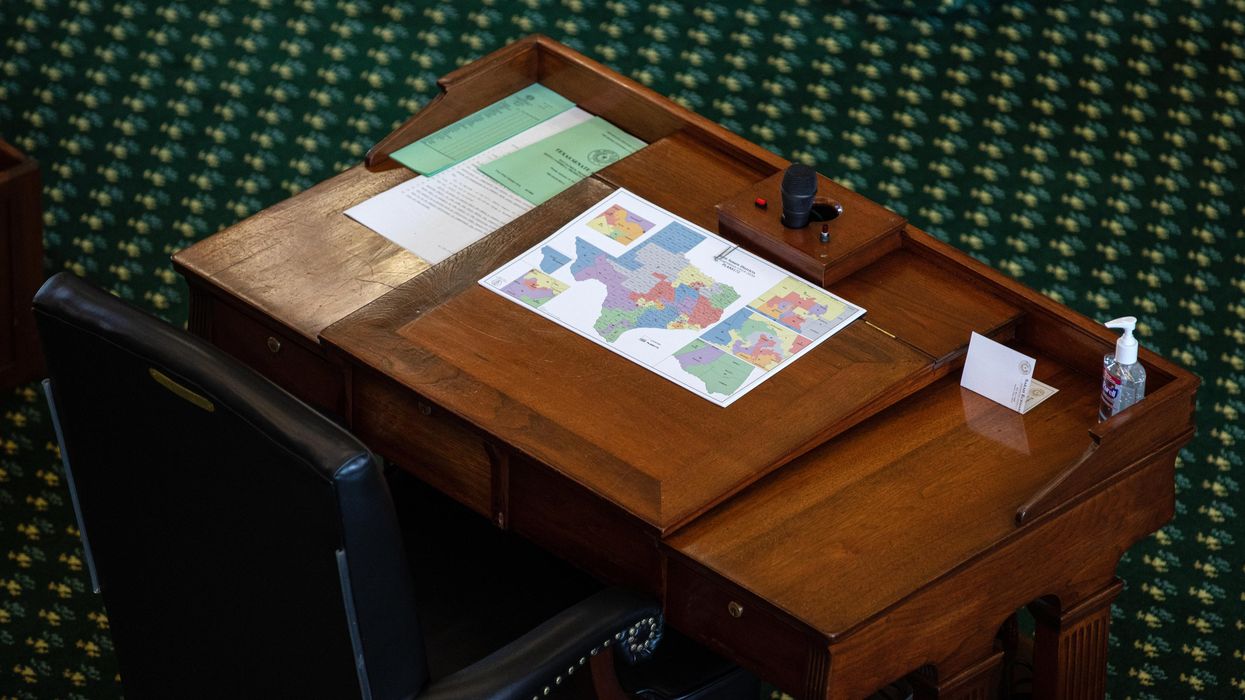Trump claims Republicans are “entitled” to five more Texas House seats.
Context: in the news
In August, the Republican-controlled Texas state legislature approved a rare “mid-decade” redistricting for U.S. House seats, with President Donald Trump’s encouragement.
Why?
Midterm elections, held two years into a presidential term, usually flip House control from the president’s party to the opposition. It happened in 2022 under Biden, in 2018 under Trump’s first term, in 2010 under Obama, and in 2006 under George W. Bush’s second term.
Facing a potentially similar result next year in 2026, Trump encouraged Texas to redraw its districts with new maps projected to net Republicans up to five additional seats. For context, Republicans currently control the U.S. House by only five seats nationally.
Texas’s move sparked an arms race to respond in kind, among both red and blue states. California, Illinois, and Maryland are now considering mid-decade redistricting on the Democratic side; Florida, Missouri, and Ohio on the Republican side.
Context: what is mid-decade redistricting?
Each U.S. House district is supposed to contain an approximately equal number of residents, currently around 761 thousand. But populations in these districts gradually change: births, deaths, people moving in, people moving out.
To keep the numbers equal over time, states usually redraw their district boundaries once per decade, after a Census. The Census occurs in years ending with 0, such as 2010 and 2020. So those new lines go into effect during years ending with 2, such as 2012 and 2022. Anything after that, such as for next year’s 2026 election, is considered “mid-decade.”
10 states actually ban mid-decade redistricting in their state constitutions, comprising red, blue, and swing states alike: Alabama, Alaska, Kansas, Missouri, New Jersey, New Mexico, New York, North Carolina, Pennsylvania, and Tennessee.
But it’s not banned at the federal level. Should it be?
What the bills do
Two bills in Congress would do just that. The two main proposals this summer were introduced by Texas Democrats in opposition to that state’s Republican plan, and by a California Republican in opposition to that state’s Democratic plan.
Rep. Marc Veasey (D-TX33) introduced the former, titled the Anti-Rigging Act, on July 10. Rep. Kevin Kiley (R-CA3) introduced the latter, numbered H.R. 4358, without an official title, on August 5.
The bills’ sponsors have not coordinated their legislation.
Both bills contain provisions making an exception for mid-decade redistricting if a state does so to comply with either the Constitution or the Voting Rights Act of 1965, if mandated by a federal court. For example, in 2023, the Supreme Court nixed Alabama’s map for violating the Voting Rights Act—a rare 2020s Supreme Court ruling considered good for Democrats.
What supporters say
Congress’s lead Democrat and lead Republican on this issue both argue that mid-decade redistricting changes the rules of the game for pure partisan gain, when it should only be done for neutral reasons.
“This move by Gov. Abbott does Trump’s bidding, not for any legitimate constitutional purpose as they claim, but to attempt to win an election before the first ballot has been cast,” lead Democrat Rep. Veasey said in a press release. “It is cynical, racist, and with clear political intent. This bill would ensure it could never happen again.”
“Gavin Newsom is trying to subvert the will of voters,” lead Republican Rep. Kiley said in a separate press release. “Fortunately, Congress has the ability to protect California voters using its authority under the Elections Clause of the U.S. Constitution. This will also stop a damaging redistricting war from breaking out across the country.”
(The Constitution’s Elections Clause allows Congress to set parameters for the “times” and “manner” of congressional elections in the states.)
What opponents say
The most prominent Republican and Democratic governors on this issue both argue that states are within their rights to maximize partisan political advantage—and that current times call for it.
The new congressional districts “better reflect the actual votes of Texans,” Texas Gov. Greg Abbott (R) said in a press release upon passage of the state-level One Big Beautiful Map Act. “While Democrats shirked their duty, in futility, and ran away to other states, Republicans stayed the course, stayed at work, and stayed true to Texas.”
“California will not sit idle as Trump and his Republican lapdogs shred our country’s democracy before our very eyes,” California Gov. Gavin Newsom (D) said in a separate press release upon introducing the state-level Election Rigging Response Act. “This moment calls for urgency and action—that is what we are putting before voters this November, a chance to fight back against his anti-American ways.”
Odds of passage
So far, the Democratic congressional bill has attracted nine cosponsors, all Democrats from Texas. No Democrat outside of Texas has yet cosponsored it.
Two Democrats from Texas haven’t signed on, either: Reps. Joaquin Castro (D-TX20) and Henry Cuellar (D-TX28).
The Republican congressional bill has not yet attracted any cosponsors, likely because such a move would be considered too “anti-Trump” within the party. Not even any of the other eight California House Republicans have signed on.
Both bills await a potential vote in the House Judiciary Committee, unlikely under Republican control.
Rep. Mike Lawler (R-NY17) has publicly come out against mid-decade redistricting, in opposition to his home state New York’s Democratic plan, but has neither cosponsored the existing Republican bill nor introduced his own such bill as of this writing.
Jesse Rifkin is a freelance journalist with the Fulcrum. Don’t miss his report, Congress Bill Spotlight, on the Fulcrum. Rifkin’s writings about politics and Congress have been published in the Washington Post, Politico, Roll Call, Los Angeles Times, CNN Opinion, GovTrack, and USA Today.
SUGGESTIONS:
Congress Bill Spotlight: Banning Trump Administration From Renaming Naval Ship Harvey Milk
Congress Bill Spotlight: Making Trump Assassination Attempt a July 13 National Holiday
Congress Bill Spotlight: Requiring Public Schools Start the Day With the Pledge of Allegiance
Congress Bill Spotlight: Trump Derangement Syndrome Research Act




















